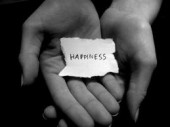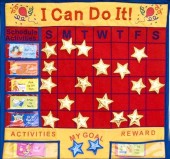Humor to Cope with Mental Illness. Seriously?
I come home from the drugstore with a bagful of meds - for me this time. With threatening bronchitis and a theatre show to do in two days, I must take care of this cough and cold, and nature is just not cutting it alone this time.
Ben watches me unpack my goodies - four prescriptions in all - and line them up on the counter. This is a familiar sight, one we create every morning and evening when Ben stays with us. The rule? We supervise him as he takes them, and for 15 minutes afterward. No judgment, no explanations, no trying to "convince" him that he needs the meds.(More info on psychiatric  medications here) It is, simply, the rule. So far, so good. One lesson I've learned while parenting Ben from toddlerhood on, is that explanations often lead to loopholes he tries to widen and leap through.
medications here) It is, simply, the rule. So far, so good. One lesson I've learned while parenting Ben from toddlerhood on, is that explanations often lead to loopholes he tries to widen and leap through.
We are getting along so well these days. Much of it has to do with Ben's self-esteem having returned to his "baseline functionality" after this summer's relapse. So, I feel comfortable enough to start the following exchange:
Ben: "Wow, Mom, that's a lot of medications."
Me: "No kidding. I think you're going to have to supervise me when I take them. What do you think?"
Ben (smiling): "Sure, no problem, That's what family is for. But I do have to sit with you for 15 minutes after you take them to make sure you don't do anything funny. You know how you can be with compliance."
Me: "Come on, Ben, you can trust me...."
Ben: "Sorry, Mom, that's the rule!"
And we laugh as I begin to read the directions for my prescriptions.
Okay, so not the stuff of stand-up. But, to me and Ben, it's a private joke that says we are alright with the way things are - alright enough to joke about it together. Not laughing at. Laughing with.
Humor, used well, is the ultimate acceptance.
I see you getting ready to argue here, perhaps. "Mental illness is no laughing matter." "Our family is in a lot of pain." Believe me, I know. And jumping to a place of humor can't happen until some acceptance is reached - and that takes time, support, education, and patience.
But - life goes on, and once we have absorbed the worst of the pain there must be laughter - at least sometimes. People even laugh at funerals. Emotions are never consistent. They are more like oceans than mountains: ever-changing.
 I get better results reminding Ben to shave and shower by suggesting we use a "Star Chart" for him like we did when he was three, instead of nagging. It's a very different level of cooperation. When we laugh, we are halfway there. When I nag, we have added a brick to the wall of stubbornness.
I get better results reminding Ben to shave and shower by suggesting we use a "Star Chart" for him like we did when he was three, instead of nagging. It's a very different level of cooperation. When we laugh, we are halfway there. When I nag, we have added a brick to the wall of stubbornness.
Can we laugh about the frightening symptoms of schizophrenia when things are not quite so stable? Well, it's harder of course...but there is a place for it. One Thanksgiving, when Ben was clearly not being supervised enough in his group home, the lack of meds in his system was evident by his reacting more to his inner world than to the family. I looked at him during dinner and said, "Ben, I think you'd better go outside for awhile.Your inner conversation looks a lot more interesting than what we're saying. Come back after you guys have had a nice talk." Ben even smiled a little, connecting with us for a moment, before he did leave the table - but the best thing was that everyone else around the table relaxed after that. We weren't hiding from the obvious anymore, nor overdramatizing it. Humor can do that, when used well. It can make the unacceptable acceptable, at least for awhile.
At its best, humor creates partnership. At its worst, it is ridicule and bullying. The difference is often a matter of simple courtesy, but also a decision based on your sharpest instincts when it comes to those close to you. Tread carefully - but if results are encouraging, then proceed with joy. The results can be amazing.
APA Reference
Kaye, R.
(2011, December 17). Humor to Cope with Mental Illness. Seriously?, HealthyPlace. Retrieved
on 2026, March 4 from https://www.healthyplace.com/blogs/mentalillnessinthefamily/2011/12/humor-to-cope-with-mental-illness-seriously
Author: Randye Kaye
My daughter has schizophrenia and we often talk about the important of "reality checks" when she says something has happened and it seems strange to me.
In the car we heard the Christmas song "Do you hear what I hear?" and we looked at each other and I said, "it kind of sounds like they need to do a reality check" and we had a good laugh over it.
Find humor as many places as you can.
My teenage son has OCD. We often use humor. Once when we were sitting in his counselor's waiting room I was reading a magazine on home decorating. I came across an article on arranging bookshelves by color. I said, "That looks beautiful, maybe we should try it." He looked at me with eyes wide and said "Mom look where we are! Arranging books by color would be a nightmare for us!" The we both started laughing uncontrollably.
Parents can be their kids best advocate. I wish you a year of health and blessings, Please check out my blog: athomewithocd.blogspot.com, Ninja Mom
love your comment! thanks for the perspective :)
Happy New Year to you all
Randye
Humor requires the ability to see context. The moment you are able to see yourself in context you take a giant step towards health, and away from the self-absorption that mental illness demands. - Humor has quite literally saved my life.